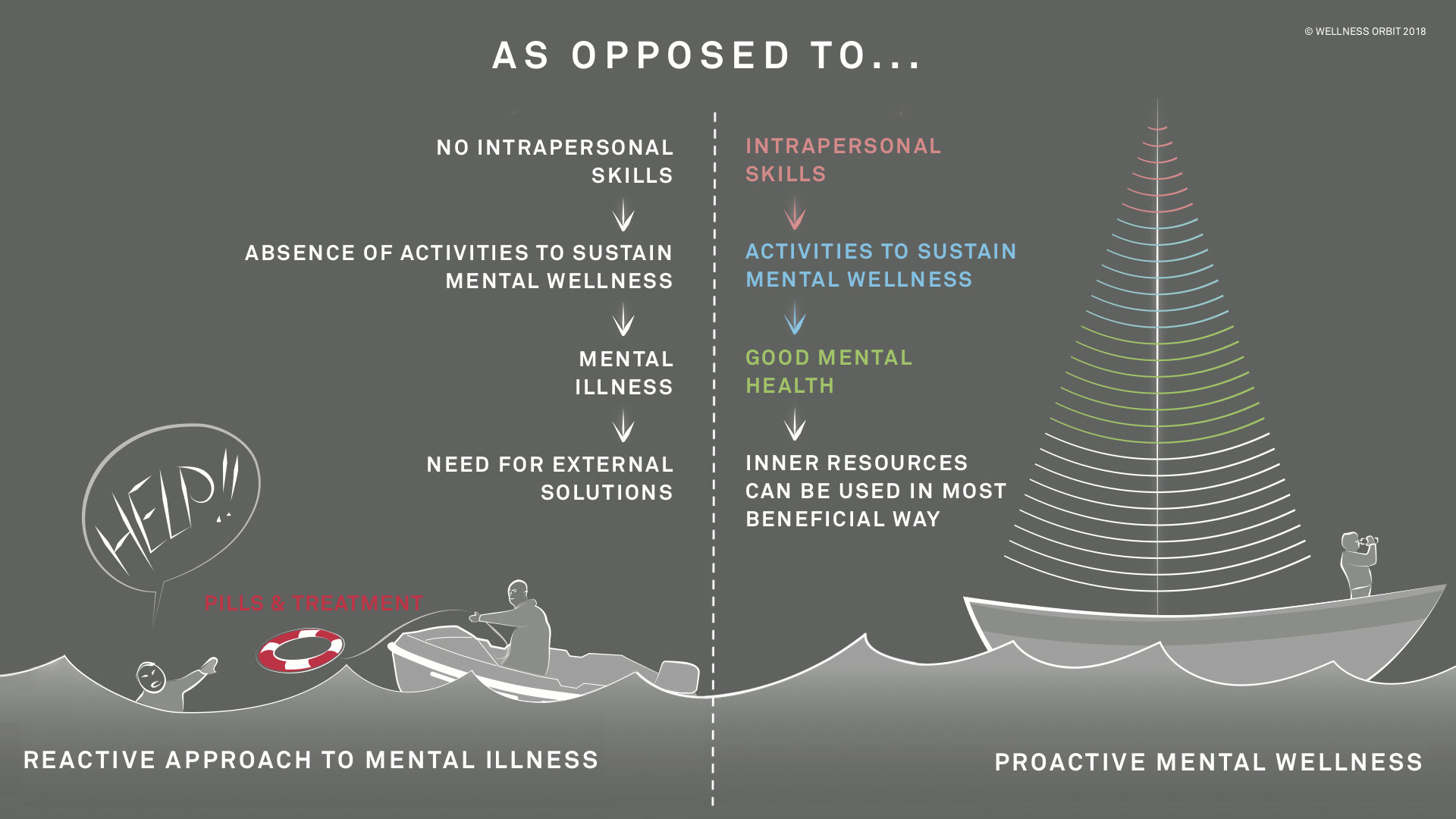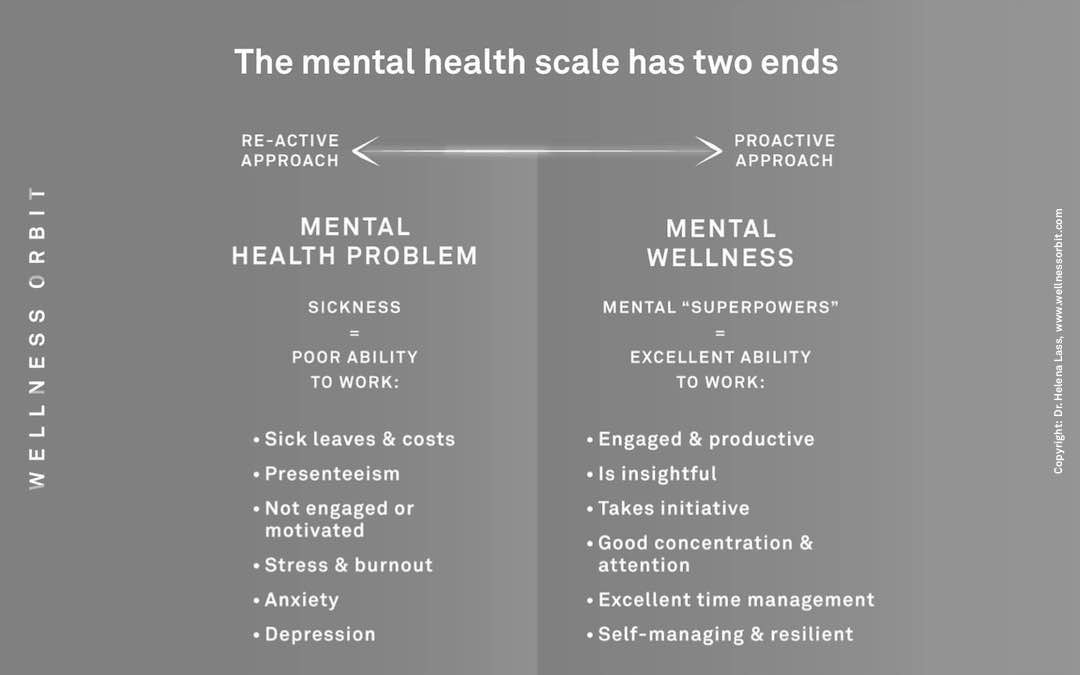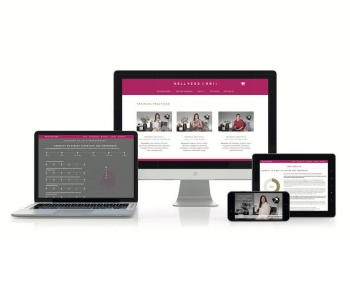Stop self-sabotaging mental health at work
Today’s workplaces demand success, securing good, healthy attitudes towards mental wellness can bring future prosperity financially, productively, and improve staff loyalty.
Why is this?
In modern workplaces, we rely heavily on our inner mental functions to get the work done. Still, up to now, we have been reactive to our mental functioning and act only when stress or even more serious mental health issues start to drag down our performance and ability to work.
Instead of the proactive mental wellness approach, we have been avoiding mental health topics due to stigma. That is something that the British Royal Family has been addressing actively – we need to talk about mental health.
THE NEED FOR PREVENTION IS FINALLY NOTICED BY POLITICAL LEADERS
During the last year, some business leaders and even high-level politicians like Boris Johnson, Theresa May, and Jacinda Ardern have taken a step further and mentioned that we need prevention in the mental health arena. But as the early prevention and proactive mental wellness approach has been missing elsewhere than here in Wellness Orbit mental wellness gym workplaces, officials have struggled to take action.
So, currently, it is only up to workplaces to take action instead of just talking. There simply is no one else who can take practical action, as schools lack mental fitness lessons, and medical systems deal only with those who have already fallen ill. It will take at least a generation to fix this in our society, but workplaces need people who are well and work well today.
HOW TO BENEFIT FROM A PROACTIVE MENTAL HEALTH APPROACH?
The preventative approach in workplaces needs to be about practical and applicable intrapersonal skills so that your whole staff can keep their inner mental capabilities in excellent shape.
Only when all employees are equipped with awareness-based intrapersonal skills to effectively handle everyday challenges amid daily work pressures can they avoid the escalation of those pressures into stress and mental health problems. Preventing mental illnesses is important as illnesses might even drive them to despair, which could lead to extremes like suicide (the topic of World Mental Health Day this year is: Focus on suicide prevention).
While more flexible work arrangements are great thanks to the modern tech solutions in our pocket, they expose us to work during the evenings and on our vacations. The modern hyperconnected world brings out our total lack of practical intrapersonal skills more painfully than ever before, as exposure to pressure now exists 24/7.
Even if we manage to keep our hands off our mobile devices, we fail to switch off our work-related thoughts and feelings and thus suffer a great deal. We tend to blame our employers for this, but in reality, we would suffer from our train of thought and heavy feelings probably even more if we were out of a job.
Blaming others isn't the solution that brings mental wellness in the workplace forward. Instead, the solution is removing our inner (negative) reactivity and understanding how our inner domain functions. But this can only start when we take a moment to learn how our minds function.
WHY DO WORKPLACES NEED TO DO MORE THAN MAP PSYCHOSOCIAL RISK FACTORS?
Today, we often find ourselves in a situation where employees expect employers to remove their stress and mental health problems, but mapping and removing all psychosocial risk factors (PSR) is never possible. For example, in the case of remote working employer doesn't even control the work environment.
Mental health issues are inner problems, and our attempts to remove external problems (stress triggers around people) don't remove our inner reactivity, as different things irritate different people.
The truth is that things that don't irritate us at all when we feel well start annoying us when we feel unwell and under pressure. Not because those things now change, but because our inner climate is different and our inner reactivity is stronger and faster.
WHY IS DEALING WITH STRESS SO IMPORTANT?
As we have revealed before, according to statistics, 87% of people admit to overworking[1] and 78 to 84% of people feel stressed at work[2]. However, that isn't all, "91% agree that colleagues’ stress impacts the workplace with a higher degree of negative impacts such as a depressing atmosphere and lowering morale, and yet employers are not doing enough to address the issue"[3].
Stress is the starting point of the downward spiral that leads to mental health issues. Take a moment and watch the video below.
Every HR and (team) leader in every workplace needs to notice that:
- More than 80% of people lack work commitment and engagement[4]. Instead of the next motivation training that employers often offer, you may notice that this number is very similar to the percentage of people who feel stressed at work. Stress again leads to employee burnout and more serious mental health issues. Observations show that the indifference that people feel isn't at all physical health or environmental issues. Removing physical objects, irritating colleagues, or external situations isn't the real solution here. Learning practical intrapersonal skills is, it will enable you to win most of those employees back and focus on productive work instead of procrastination. If you do the math, you will notice the differences in revenue when there are even 50% of the actively engaged employees instead of the current 20% of staff.
- The cost of presenteeism (showing up to work when you are unable to perform at the optimal level) is now higher (58%) than the cost of absenteeism (33%) or workforce turnover (9%)[5]. The scientific paper by Killingsworth & Gilbert highlights that our mind is wandering 50% of the time[6], so it is no surprise that 91% of people attending meetings admit to daydreaming[7]. Since awareness is the tool everyone uses for keeping their focus, we need intrapersonal education that teaches us to apply our awareness at will. It will enable employees to restore their productivity and focus by taking personal responsibility for their attention and actions in a more independent manner.
- Last year, Deloitte UK pointed out in their 2018 study 'Mental Health and Wellbeing in Employment' that the cost of poor mental health per employee in the UK varies from £497 ($685 or 580 €) up to £2564 ($3520 or 2990 €) depending on the profession[8]. We often fail to notice this cost, but it seems a very high price to pay if you compare it to the proactive mental wellness training costs per employee. In our case, a single training starts from just £81 ($99 or 90€) per employee a year for the bigger teams.
THE NEED TO DIFFERENTIATE MENTAL WELLNESS FROM MENTAL ILLNESS (OFTEN ALSO REFERRED TO AS MENTAL HEALTH)
People often confuse ‘mental illness’ with ‘mental health’ in their daily speech. But those two terms are different, and that confusion also leads to the stigma that makes mental health topics taboo for so many. So people postpone searching for help until they are ill and then depend fully on external help.
While mental health first aid can push people to seek mental health advice sooner, it isn't enough to keep people well and fit for work. This can be changed when addressing mental wellness in the workplace becomes proactive and focuses on the right side of the mental health scale shown in the illustration below.

The old school reactive approach comes way too late, the new proactive approach should be accessible for all as it enables to prevention of problems and work productively.
WHAT IS EXCELLENT MENTAL HEALTH?
But let's look at what mental health is. Mental health is first and foremost a level of psychological well-being, a state where all your inner functions operate most optimally and you feel well (right end of the scale on the illustration above). Mental illness, on the other hand, is a lack of such a good inner state (left end of the scale on the illustration above).
All work-related mental illnesses are the failure to deal with problematic inner functioning when the first warning signs emerge. As employees currently lack intrapersonal skills, they let their inner problems escalate until those problems have become chronic. Stress, as the most common problem, is the best example here, as a small amount of stress is easy to handle, but longer chronic stress causes illnesses.
WHAT DOES STRESS CAUSE?
Stress is the main gateway to employee burnout, but stress can also cause anxiety disorders, depression, and even several different physical health problems.
All work-related mental illnesses are a direct result of neglecting the need for systematic, proactive education, instead favoring a bias towards firefighting the consequences after the problem is too big to be ignored.
It all comes down to a simple thing: Until we in workplaces don't pay more attention to normal mental functioning and mental wellness, we must deal with the results of faulty mental processes.
Lack of mental wellness leads to well-known problems such as:
- Lack of focus;
- Lack of employee engagement;
- Presenteeism;
- Absenteeism;
- Sick leaves;
- And the toxic workplace problem.
It also brings a lot of personal drama as employees postpone seeking professional help when an illness shows the first signs, as they simply fail to notice those warning signs.
HOW TO SECURE EXCELLENT MENTAL WELLNESS?
Good mental health can be called mental wellness. Mental wellness is when all our inner functions run on the most optimal regime.
Let’s observe what comes along with mental wellness:
- Sustained attention and ability to focus on any task as long as needed;
- Accepting changes as a normal part of life and dealing well with the unknown situations;
- Taking personal initiative and being solution-focused;
- Taking personal responsibility for the thoughts that we express and the actions that we take;
- Being aware of our emotions and leading those emotions with ease;
- Being able to access creativity and insights;
- Excellent management of our activities in time;
- Good listening skills and the ability to help others when needed.
These inner capabilities make people ideal to work with. We all desire teammates who have such capabilities.
The good news is that those capabilities are the result of systematic exposure to intrapersonal education. Of course, such education isn't only listening but instead a more practical approach where people put their intrapersonal skills to the test, and measure the results and correct their actions if needed. That is why all Wellness Orbit e-trainings come with self-evaluation tests and workbooks.
We provide access to practical and applicable mental wellness gym training for stress reduction. Our modern e-trainings help you and your team members to direct their own inner functions and the brain!
When people in the team function well, the team functions well.
STOP PROCRASTINATION TO SAVE TIME AND MONEY
The reason why this is the most efficient proactive mental approach is simple: our founder and trainer, Dr. Helena Lass, has been on it for longer than others. She is a practitioner as she works as a medical doctor and acts as an entrepreneur and awareness teacher. For her, everything in life is practical, as she is a result-focused professional. Of course, this practical approach needed a scientific take too; it is addressed in her scientific paper entitled 'Developing Intra-Personal Skills as a Proactive Way to Personal Sustainability - The Preventative Side of the Mental Health Equation', published globally by Routledge last year.
Focusing on mental wellness is your opportunity to make a positive impact on the lives of all employees. It especially supports high achievers and top-level experts who live a busy life, full of a lot of pressure.
BONUS: ACCESS TO MENTAL SUPERPOWERS
The benefit here is more than just surviving under pressure. We see that all employees with excellent intrapersonal skills will have access to 'mental superpowers' (see the graph below explaining the benefits of mental wellness).

Those 'superpowers' aren't unnatural at all; everyone can train them, but just a few currently do so.
Excellent ability to differentiate and hold focus, obtaining easy access to insights and intuition, or being creative at any time are all just results of understanding how our inner domain functions. Those powers enable us to innovate, work smart, and find original approaches that fit each work situation.
CONCLUSION
We can put it this way – the 'mental superpowers' enable us to be productive in a smart way. In a way, that will allow us to move forward in this world where machines think and act faster than human thinking or human hands. The listed inner 'superpowers' differentiate us from machines and make us unique and desired in any team. Also, knowing how to access the ‘mental superpowers’ will enable us to live meaningful lives and stay mentally fit and well.
Stop being busy. Instead, use your time in a meaningful way that allows you to bring along positive impacts.
Do you now have more ideas on how to live well and work well, or improve mental wellness in the workplace?
► References:
[1] The online survey by Wrike, 1915 respondents
[2] Managing mental health in the workplace, 2018 report by Investors in People
[4] Gallup 142-country study "State of the Global Workplace", 2013
[5] The European Agency for Safety and Health at Work, document on "Calculating the cost of work-related stress and psychosocial risks". Referring to the Sainsbury Centre for Mental Health survey (2007) about the costs of mental health issues in the UK
[6] Killingsworth & Gilbert, Published in Science 2010, "A Wandering Mind Is an Unhappy Mind"
[7] Atlassian survey infographic
[8] Mental Health and Wellbeing in Employment, October 2017
This blog post is written by Kaur Lass. Updated 17.03.2025


